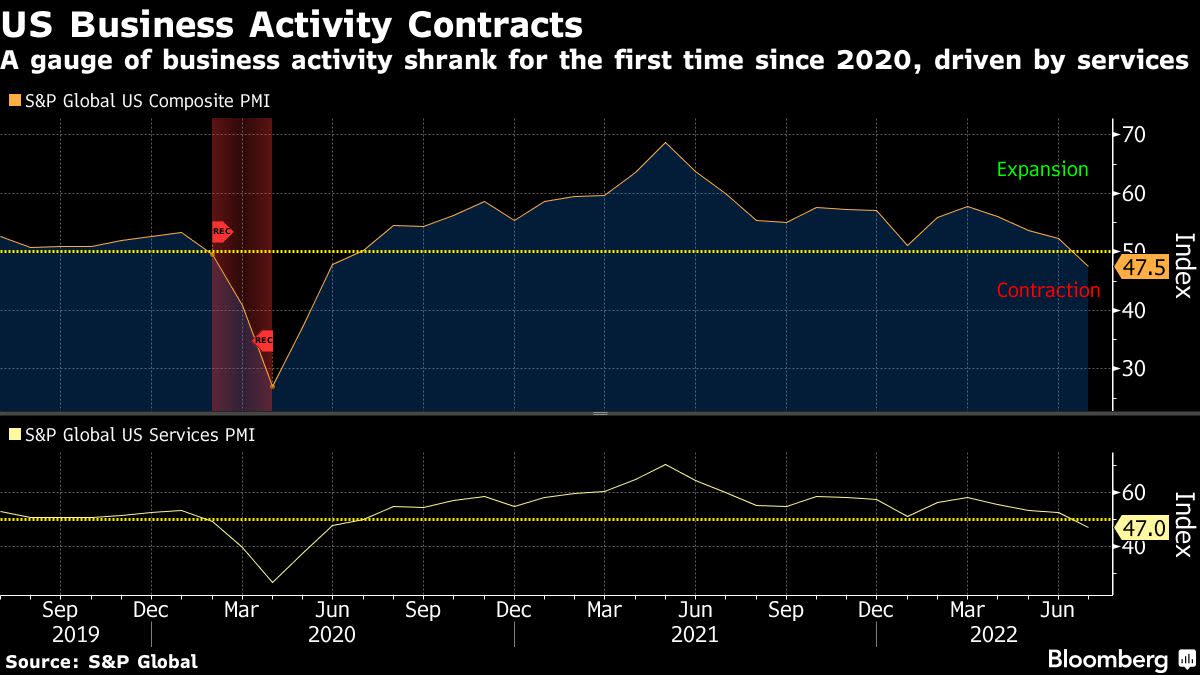JPMorgan’s Michele Says Bonds Have Recession Priced In

(Bloomberg) — Bob Michele, a bond market veteran for more than four decades, predicts a 75% chance of a US recession over the next 18 months, but thinks it’s priced in.
Most Read from Bloomberg
“Clients are returning to the bond market, especially corporate bonds,” Michele, JPMorgan Asset Management’s chief investment officer, said on Bloomberg Television’s “Wall Street Week” on Friday. “It’s because they have renewed confidence in the central banks.”
Central banks worldwide are aggressively raising interest rates in an attempt to tame stubborn inflation, while trying to avoid tipping economies into recession. The European Central Bank increased rates this week for the first time in more than a decade. A Bloomberg survey of 44 economists conducted between July 15 and July 20 found expectations are that the Federal Reserve will hike 75 basis points again next week, then slow to 50 points in September.
With recession expectations at 75%, Michele said the market is “now fairly pricing in where they think the Fed should go. And the Fed is in sync with that. We’re talking about a Fed funds rate somewhere around 3.5% at year end.”
The equity market, which posted its best week in a month, hasn’t fully priced in a recession over the next year, Erin Browne, multi-asset strategy portfolio manager at Pacific Investment Management Co., told Bloomberg Television. “The market is pricing basically stagnating growth,” she said. “I think its going to be negative growth.”
Despite closing the week stronger, paring this year’s market rout to about 17%, stocks slid on Friday as disappointing results from social-media firms and weak economic data added to recession fears.
“Look, the bar was low going into earning season,” Browne said. “Really what you’re hearing a lot from corporates right now is that the consumer is weakening, but you’re also starting to see business confidence also weaken.”
Underscoring fears of a slowdown, treasuries extended an advance, pushing the 10-year yield to around 2.7%, while business activity deteriorated across the world in July, according to a survey from S&P Global.
Persistent inflation will continue to show up in second-quarter earnings, Browne said, “but what’s new is you’re starting to see higher financing costs also start to really bite.”
Both agreed on the short-term outlook for Europe, saying inflation will likely remain structurally high and the European Union will continue to struggle with soaring energy costs because of Russia’s war on Ukraine.
The ECB will do what it can to slow consumption, though it “can only raise rates so high, maybe 1.5, 1.75%, that’s about it,” Michele said.
“Ultimately we like sovereign debt there, but we like Germany,” he said. “We’re not necessarily sold on Italy.”
Browne and Michele diverged on expectations for the dollar, which retreated this week after hitting a record high last week.
While Browne said she expects the dollar to continue to strengthen, Michele said the greenback has “gone as far as it can.”
Most Read from Bloomberg Businessweek
©2022 Bloomberg L.P.




